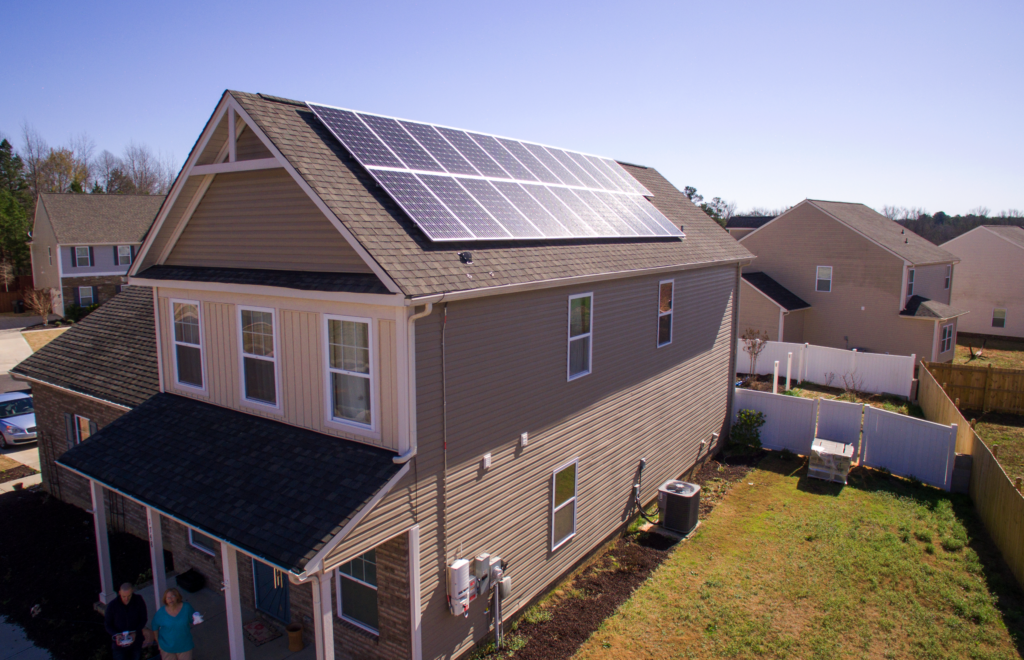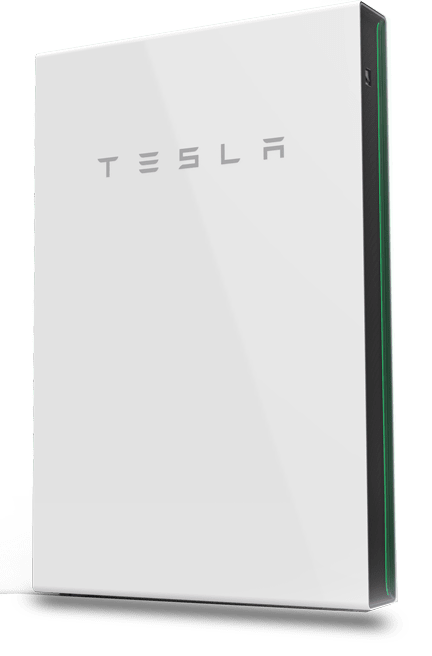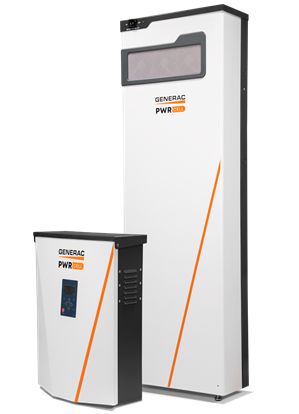Energy Storage for Your Home
Energy Independence With Energy Storage
Solar Energy Storage: Benefits of Battery Backups
Solar energy storage is rapidly becoming one of the most popular ways to generate power for both homes and businesses. In 2019, 40 percent of all new electric generating capacity was solar power.
This was:
• The highest percentage of any energy source added to the grid
• The largest share of solar power to date
• Enough to power 14.5 million homes in the United States
As more Americans are turning to solar power for their home energy, more of them are also considering backup power storage solutions. There are significant benefits to having your own backup system, including becoming more energy independent. In this post, we’ll share a few more of these benefits, along with tax credit information, energy monitoring insights, and more.
If you already know that you’re ready to back up your home energy system, simply request a free solar consultation online. Or, call (704) 525-6767.
Or, maybe you’re still in the information gathering stage. If so, then here are answers to frequently asked questions about this kind of storage.
What is Solar Energy Storage?
With solar power, panels take in the sun’s energy and transform it into electricity. A piece of equipment called an inverter then takes that electricity and turns it into a form that you can use. When excess energy is produced, it’s sent back to the power grid. When you need more energy than what’s being produced by your solar panels, you can then take it from the grid.
There is, however, another option when excess energy is being created by your solar panels. That’s to store it yourself, rather than sending it back to the grid, for your future needs.
Here’s what’s interesting. If you would go back in time, all solar energy systems were originally off the grid. These energy systems collected the sun’s energy and stored it in a battery. These were usually lead-acid batteries.
In the late 1990s, the grid-tied inverter became used more often. When that became widely available, people using solar energy systems no longer needed their battery. Now, though, we’re coming full circle so that consumers can benefit from the best of both worlds. They have renewable energy that’s tied to the grid for reliable power AND they can have backup batteries for increased energy independence.

Frequently Asked Questions About Energy Storage:
How Does Storing Energy Work?
How Does This System Affect My Electric Bills?
Why is Battery Backup Important?
How Can We Monitor Our Energy Consumption and Storage?
Home Solar System
The amount of electricity that a solar energy system will produce will depend on a number of factors, including the location of the home, system design, and much more. Ideally, a home with an unobstructed south-facing view will produce more than enough energy.
Energy Storage
Installing battery backup along with your solar energy system for home or business is a smart move and can increase the value of your clean energy investment as well as peace of mind when a grid outage occur.
EV Chargers
Electric cars – with no gas engine at all – now work for most budgets and lifestyles. With more and more models to choose from, drivers are choosing electric vehicles (or EVs) than ever before!
Get Started on Your Solar Journey...
Please fill out this quick contact form and let us know how we can help you!
"*" indicates required fields

How Can We Choose the Best Backup Battery for Energy Storage?
First, the experts at Renu Energy Solutions would be happy to talk to you about your solar energy storage options. You can set up a free virtual consultation online. In general, you’ll want to have a battery backup that has the right amount of capacity for you. This is measured in kilowatt hours (kWh). If you want additional capacity, you can include more than one battery in your system.
Also look at a battery’s depth of discharge (DoD). This tells you how much of your battery’s capacity you should be able to use. In general, a higher number is better. Then there is the battery backup’s round-trip efficiency. This is a calculation that looks at how much energy you can use as well as how much power it takes to store that energy. Again, in general, a higher number means a better value for you.
Choose Your Energy Security…
First, the experts at Renu Energy Solutions would be happy to talk to you about your solar energy storage options. You can set up a free virtual consultation online. In general, you’ll want to have a battery backup that has the right amount of capacity for you. This is measured in kilowatt hours (kWh). If you want additional capacity, you can include more than one battery in your system.

Tesla Powerwall
This is a rechargeable lithium-ion battery that can store up to 13.5 kWh of clean energy to provide power to your home. You can mount this on your wall, and it’s integrated with the local power grid to give you the flexibility to draw this renewable energy, when needed.

Generac PWRcell
This is another solution that can harness the sun’s power and store it for backup power during outages to protect your home and family. This battery uses revolutionary technology to provide surge power up to 10kW, with up to 8kW of continuous output. This is enough to keep most homes up and running with power.
